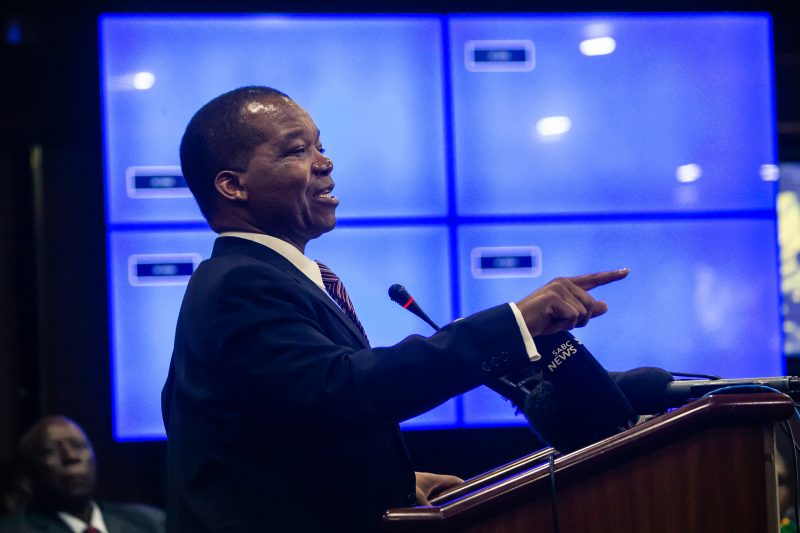Zimbabwe introduces inter-bank forex market to curb black market
Zimbabwe Reserve Bank Governor John Mangudya said the system revamp would ensure “no one goes to buy currency from the parallel market” (Jekesai NJIKIZANA)
Harare (AFP) – Zimbabwe’s central bank on Wednesday said it was introducing a new interbank foreign exchange system effectively devaluing its quasi-currency which was officially pegged at par with the US dollar.
“We have provided a formal way of trading in foreign currency,” reserve bank of Zimbabwe governor John Mangudya said in announcing new monetary policy measures aimed at addressing a perennial foreign currency crunch.
“We have basically formalised what is happening. We have basically ensured that no one goes to buy currency from the parallel market.
“The inter-bank exchange system will have significant positive effects on the economy’s external and fiscal sectors, domestic production and on the welfare of citizens,” he said.
The local bond -– a quasi-currency introduced two years ago to address cash shortages -– will be a tradable domestic currency alongside the greenback, South African rand and a host of other foreign currencies adopted in 2009 after hyperinflation rendered the local Zimbabwe dollar unusable.
The new foreign exchange policy in essence devalues the local bond note — the quasi-currency which exists in note and electronic form introduced in 2016 by ousted leader Robert Mugabe to address cash shortages.
It had been pegged at 1:1 against the US dollar while the parallel market rate was much higher.
Zimbabwe’s economy has been on a downturn for over a decade with high inflation and cash shortages which forced bank to put a ceiling on withdrawals as depositors spent long hours queueing to withdraw cash.
President Emmerson Mnangagwa, who took over from long-time ruler Mugabe following a brief military takeover in 2017 has vowed to revive the country’s moribund economy.
In October last finance minister Mthuli Ncube introduced a two percent tax on all electronic transactions triggering price hikes and shortages of fuel and basic commodities like bread and cooking oil.
In January, Mnangagwa announced a more than 100 percent hike in the prices of fuel.
The move sparked countrywide protests which left at least 17 people dead after soldiers were deployed to crush the protests.
Disclaimer: This story is published from a syndicated feed. Siliconeer does not assume any liability for the above story. Validity of the above story is for 7 Days from original date of publishing. Content copyright AFP.


